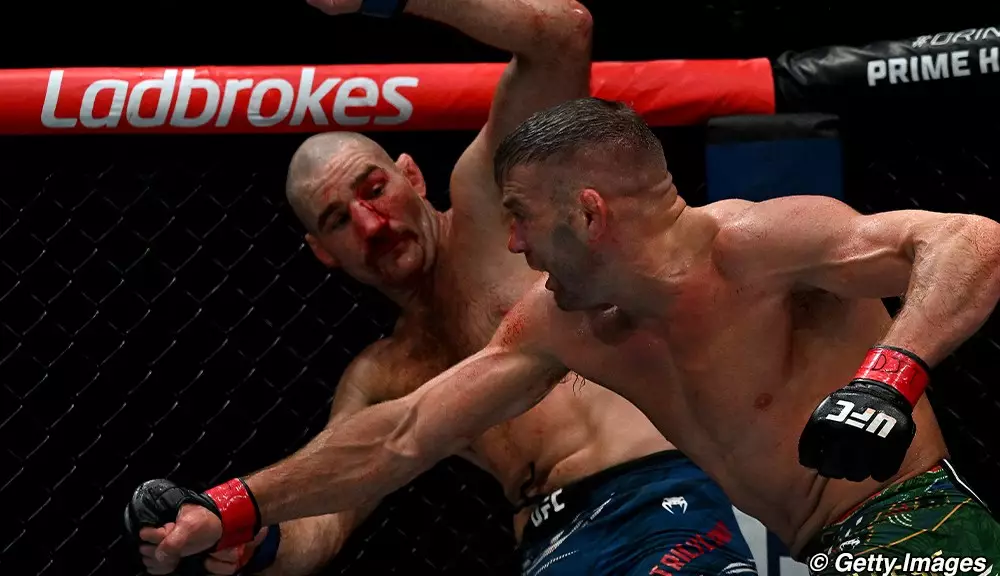Sean Strickland’s recent bout against Dricus Du Plessis at UFC 312 ended in a decisive unanimous decision, marking a setback for the fighter in a high-stakes middleweight title rematch. While losses in the octagon are commonplace in the world of mixed martial arts, Strickland’s reflections post-fight have shed light on an array of underlying issues he faced leading up to the match. Although Strickland has insisted he isn’t looking to make excuses, the context of his training camp raises critical considerations about athlete preparedness and the mental fortitude required to compete at elite levels.
Strickland disclosed that his rigorous training camp was marred by significant physical hindrances, including a staph infection and a concerning arm injury. While the athlete initially played down the severity of a visible staph infection during pre-fight interviews, it was later revealed that he had been contending with this issue for several weeks leading up to the fight. These revelations painfully highlight the reality many fighters face: the dual battle of physical ailments coupled with the mental struggle of performing when one is not at their best.
Additionally, Strickland described threatening pain from what he labeled as a broken arm, stemming from an aggressive training session. This not only complicates physical readiness but emphasizes the psychological impact of fear—fear of re-injury and the dread of competing against an opponent when one knows they’re not at full strength. In combat sports, where the difference between victory and defeat is razor-thin, such concerns can loom large over a fighter’s mindset.
Strickland’s candidness regarding his mental state is also revealing. He articulated a conflict between self-belief and the underlying awareness of his physical limitations. As he stated, the entire training camp manifested a struggle of self-affirmation—projecting confidence while internally battling doubts. This paradox is common among athletes: the need to present a brave exterior can create an environment in which they might feel compelled to ignore legitimate concerns about their health and readiness.
Many fighters, like Strickland, find themselves at odds with their own physical frailties while trying to uphold a sense of mental toughness, which can be a detriment when physical issues, such as injuries or infections, threaten optimal performance. In Strickland’s case, these experiences illustrate how fighting is not merely a physical contest, but a multifaceted psychological battle as well.
Despite the challenges he faced, Strickland remains committed to his fighting career. His reflections after the fight suggest a determination to rebuild and refocus. Strickland’s intent to “start from square one” underscores a growth mindset, where setbacks become catalysts for improvement rather than final defeats. This attitude is crucial in the fast-paced and often unforgiving realm of professional MMA—where fighters must learn to adapt, evolve, and cope with the inevitable highs and lows of competition.
Strickland’s acknowledgment of Dricus Du Plessis’ skill and determination further illustrates his sportsmanship and respect for the sport. As much as it is about winning titles, it is apparent that Strickland values the journey and the lessons he has gleaned through his experiences. For him, fighting has provided a platform for personal growth, self-discovery, and connection with others, which is arguably as gratifying as any belt.
Sean Strickland’s experience leading to UFC 312 serves as a poignant reminder of the complexities inherent in professional sports. Physical injuries, mental hurdles, and the pressures of competition all intertwine in the life of a fighter. Moving forward, Strickland embodies resilience, and his commitment to improvement not only demonstrates a dedication to the craft but also resonates with fans and aspiring athletes alike. His story ultimately reflects the broader experience of countless fighters navigating their own challenges in pursuit of excellence in mixed martial arts.

